The overturning of Roe v. Wade on June 24, 2022, has opened the flood gates of pro-abortion propaganda and misinformation. One of the most popular claims being spread right now is that treatment for miscarriages and ectopic pregnancies will be banned in pro-life states. This is false.
Abortion advocates, including pro-abortion OB/GYNs, are attempting to scare women with the lie that they are going to be left to die if they suffer an incomplete miscarriage or an ectopic pregnancy, thanks to pro-life laws. But they are purposefully conflating the medical and legal definitions of abortion and leaving out the very important fact that pro-life laws restricting abortion specifically exclude these life-saving procedures.
In other words – treating a miscarriage or ectopic pregnancy is legal. Everywhere.
View this post on Instagram
Alabama
Alabama law states that an abortion does not include an act or means “to remove a dead unborn child.” It also states that an abortion “shall not be construed to include any procedure to terminate an ectopic pregnancy…”
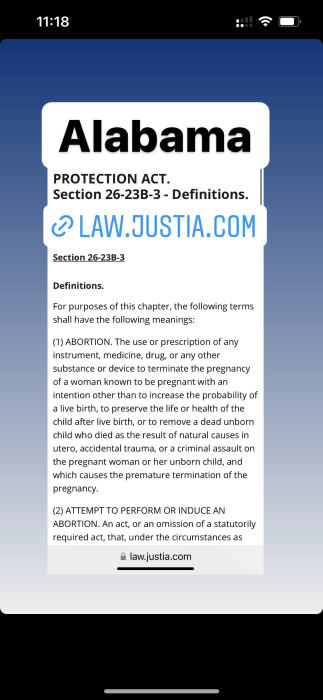
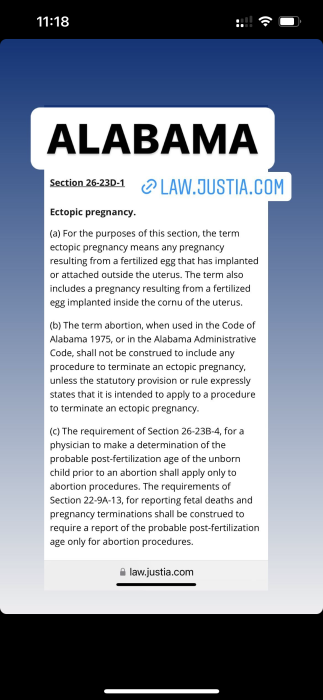
Arizona
Arizona law states that abortion is “the use of any means to terminate a clinically diagnosable pregnancy … with the knowledge that the termination by those means will cause, with reasonable likelihood, the death of the unborn child.” It also states that abortion does not include “any means to save the life or preserve the health of the unborn, to preserve the life or health of the child after a live birth, to terminate an ectopic pregnancy or to remove a dead fetus.”
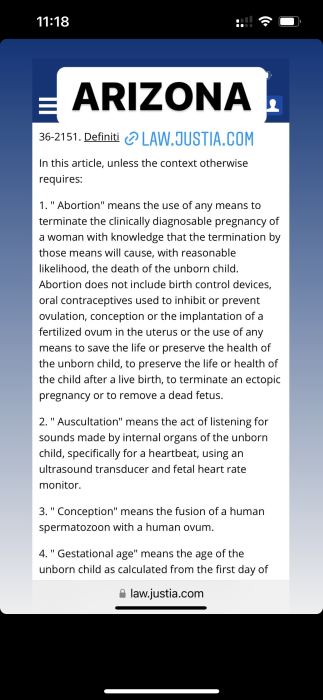
Arkansas
The law in Arkansas that abortion is “the act of using, prescribing, administrating, procuring, or selling of any instrument, medicine, drug, or any other substance, device, or means with the purpose to terminate the pregnancy…” It continues that an act shall not be considered an abortion if it is carried out to “preserve the health of the unborn child” or “remove a dead unborn child caused by a spontaneous abortion [miscarriage],” or to “remove an ectopic pregnancy.”
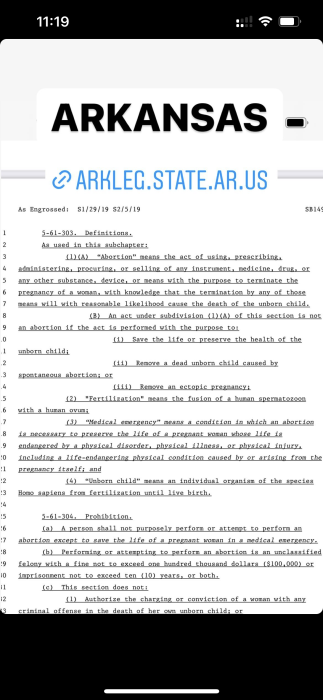
Florida
In Florida, the law defines abortion as “the termination of human pregnancy with an intention other than to produce a live birth or to remove a dead fetus.” It includes an exception for life-saving medical treatment, which would include treating an ectopic pregnancy.
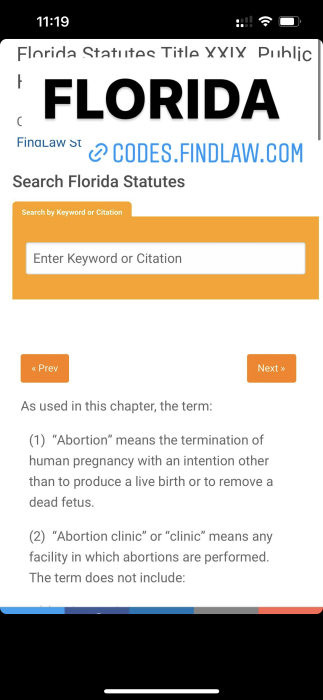
Georgia
Georgia law states that abortion is “the act of using, prescribing, or administering any instrument, substance, device, or other means with the purpose to terminate a pregnancy…” It clearly states, “Removing a dead unborn child caused by spontaneous abortion [miscarriage]” and “Removing an ectopic pregnancy” would not be an abortion under this law.
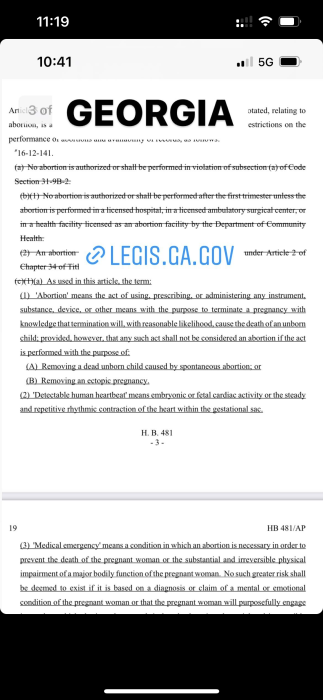
Idaho
In Idaho, abortion is defined as “the use of any means to intentionaly terminate the clinically diagnosable pregnancy of a woman with knowledge that the termination by those means will, with reasonable likelihood, cause the death of the unborn child …” It has an exception for treatment for a condition that carries “serious risk of substantial and irreversible impairment of a major bodily function” such as ectopic pregnancy.
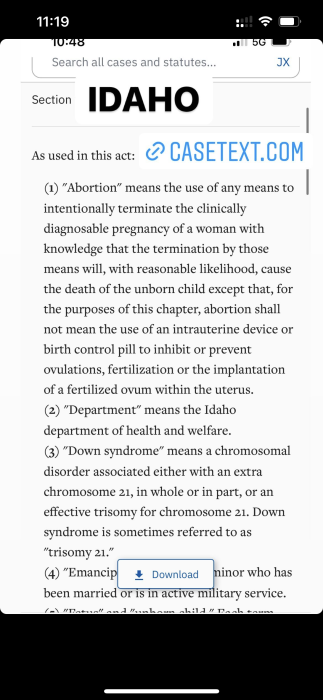
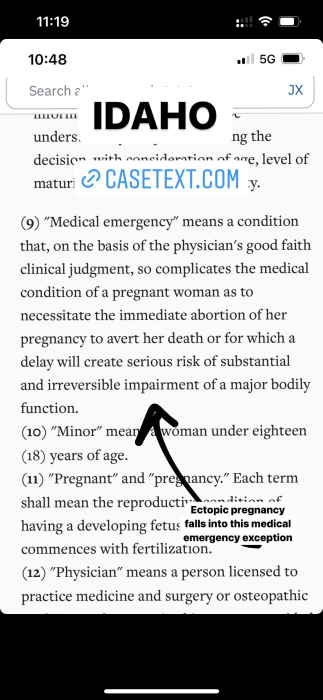
Indiana
Abortion in Indiana is defined as “the termination of human pregnancy with the intention other than to produce a live birth or to remove a dead fetus [miscarriage].” It also has an exception for medical emergencies such as ectopic pregnancy.
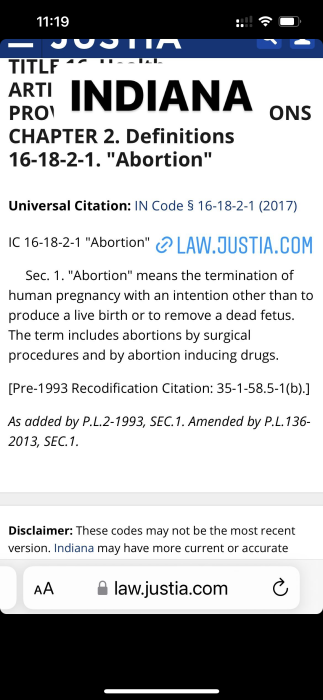
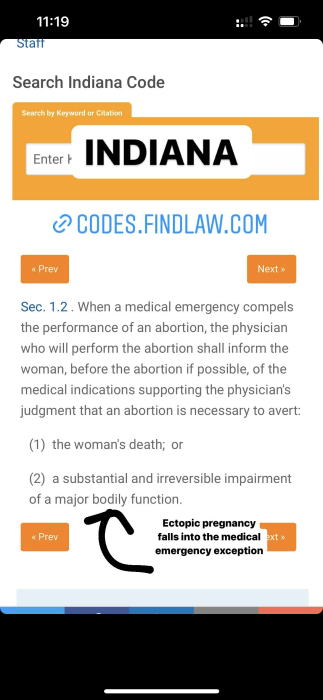
Iowa
Iowa law states that abortion is the “termination of a human pregnancy with the intent other than to produce a live birth or to remove a dead fetus.” The law restricting abortion carries an exception for medical emergency including ectopic pregnancy.
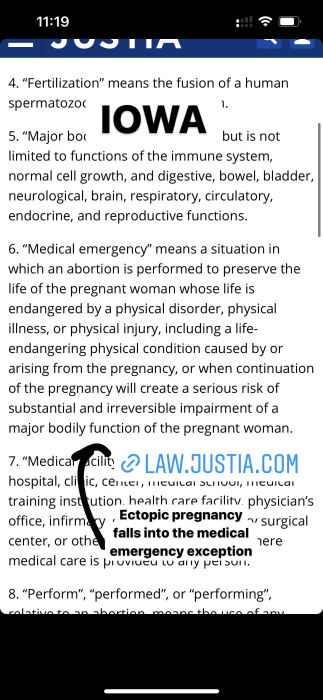
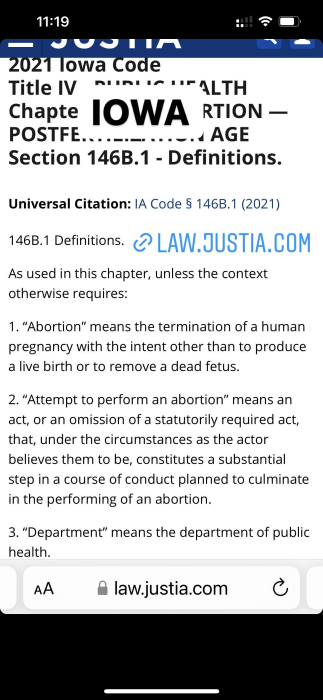
Kansas
In Kansas, abortion is “the use or prescription of any instrument, medicine, drug, or any other substance or device to terminate the pregnancy … with an intention other than to increase the probability of a live birth or to preserve the life or health of the child after live birth, or to remove a dead unborn child…” There is an exception for medical emergencies such as ectopic pregnancy.
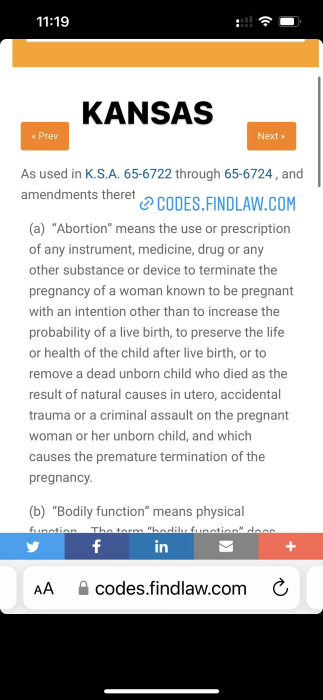
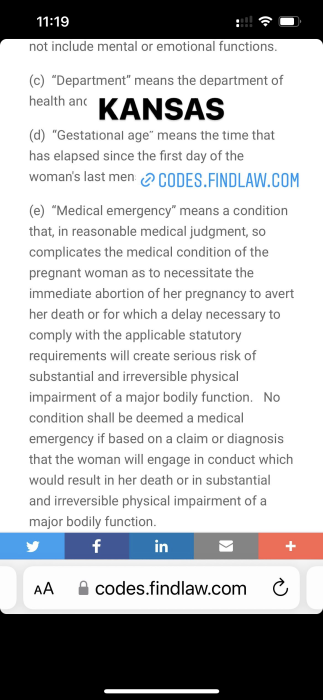
Kentucky
Likewise, Kentucky’s law has an exception for medical emergencies that carry “a serious risk of the substantial and irreversible impairment of a major bodily function of the pregnant woman…”
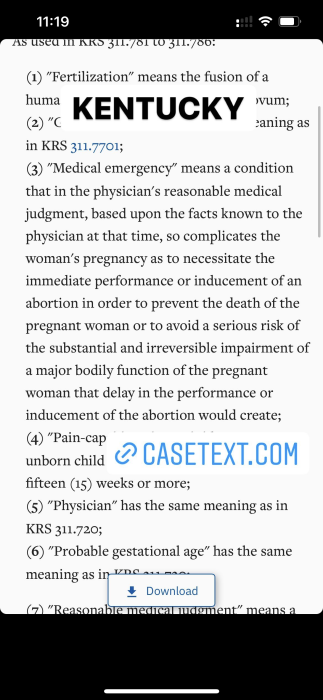
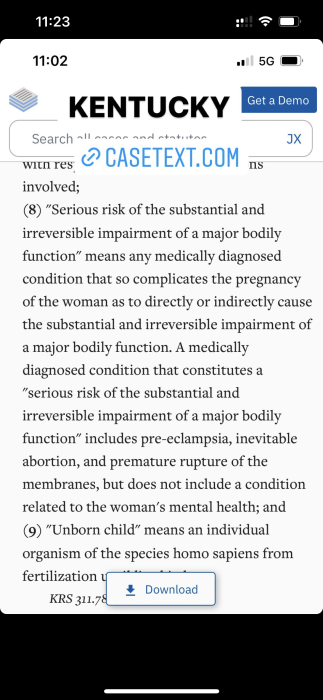
Louisiana
Louisiana defines abortion as “the use or prescription of any instrument, medicine, drug, or any other substance or device to terminate the pregnancy of a woman … with an intention other than to increase the probability of a live birth, to preserve the life or health of the child after live birth, or to remove a dead unborn child…” There is an exception for medical emergencies such as ectopic pregnancy.

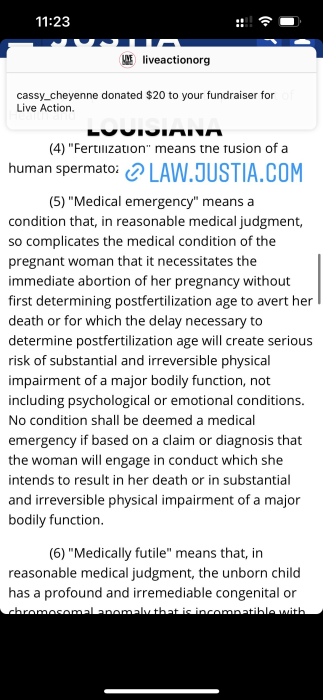
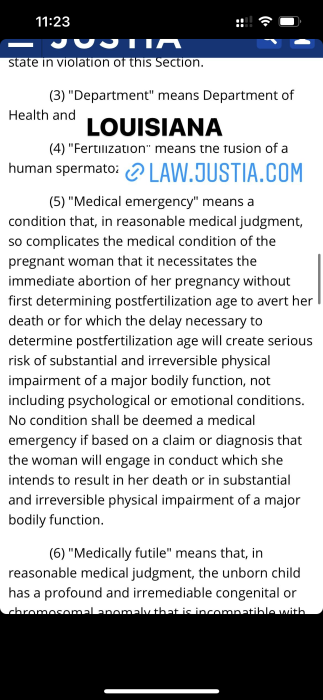
Michigan
Michigan’s laws state that an act of abortion does not include an act “to remove a fetus that has died.” There is also an exception for medical emergencies, which would include ectopic pregnancy.
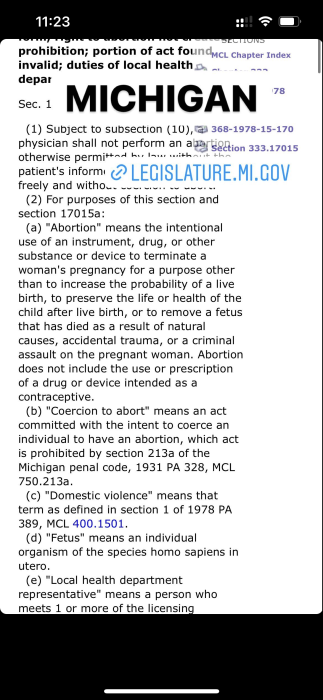
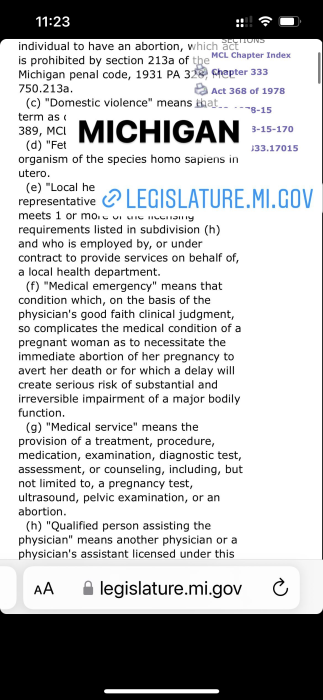
Mississippi
Mississippi’s definition of abortion also states that legally, an abortion does not include the act “of removing a dead unborn human being.”
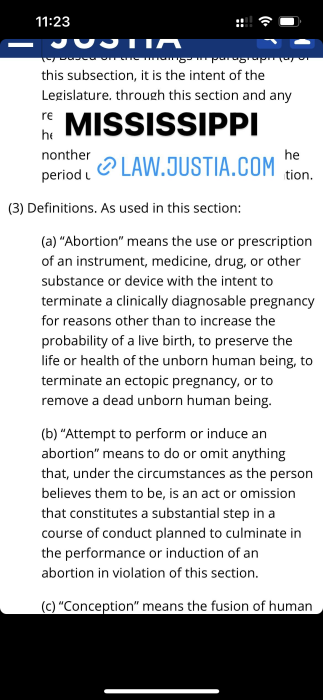
Missouri
In Missouri, the pro-life law has an exception for “removing dead unborn children” lost to miscarriage. There is also an excpetion for medical emergencies such as an ectopic pregnancy.
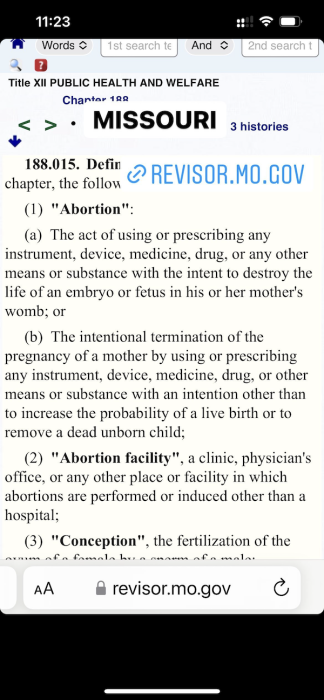
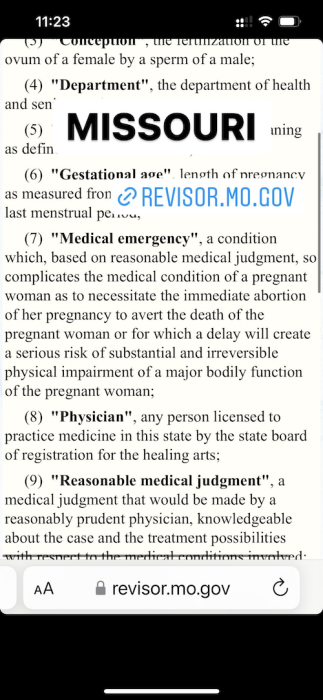
Montana
The Montana law states that an act is not an abortion if it is carried out to “remove a dead fetus.” In addition, there is an exception to the law for medical emegencies that threaten a woman’s life.
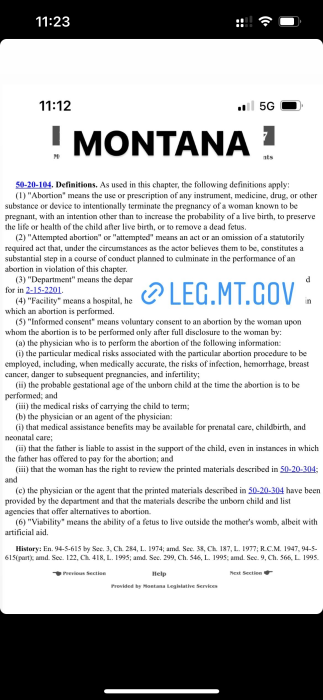
Nebraska
Nebraska’s definition of abortion excludes an act to “remove a dead unborn child.” There is also an exception for medical emergencies.
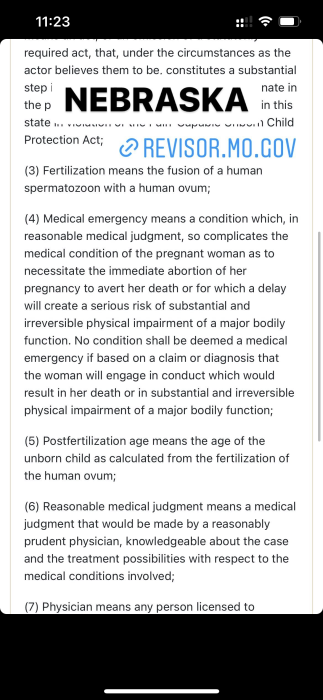
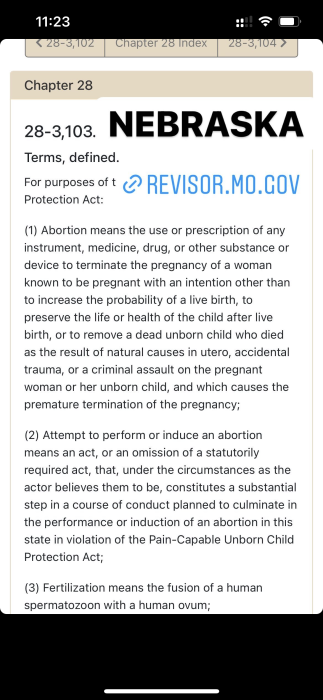
North Carolina
The law in North Carolina states that an abortion does not include an act or means to “remove a dead, unborn child” and it also includes an exception for medical emergenices.
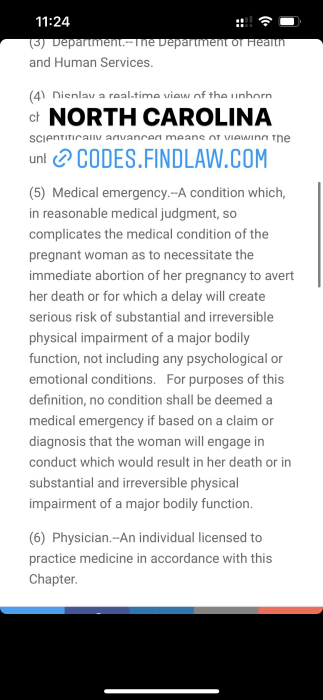
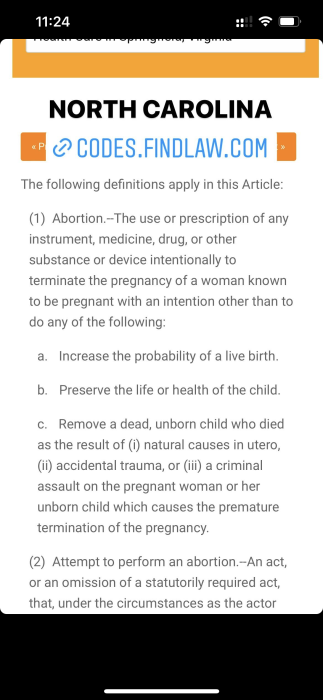
North Dakota
North Dakota’s law states that an abortion is not an act that is used to “remove a dead, unborn child.” It also carries a medical emergency exception to save the mother.

Ohio
In Ohio, the law states that an abortion does not include an act to “remove a dead fetus or embryo.” The law also includes an exception for medical emergenices such as an ectopic pregnancy.
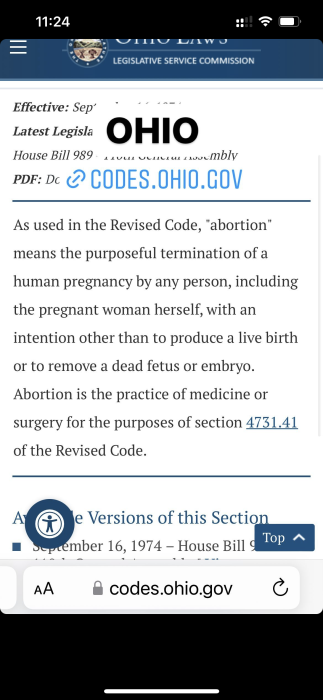
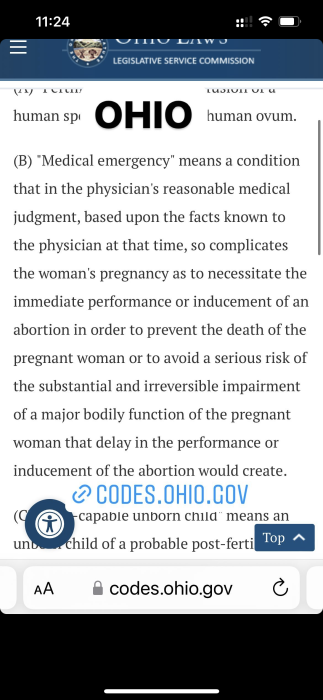
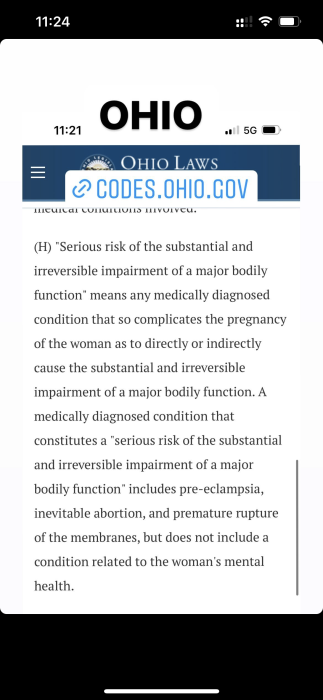
Oklahoma
Abortion in Oklahoma is “the use of any means intentionally to terminate the pregnancy of a female known to be pregnant with knowledge that the termination with those means will, with reasonable likelihood, cause the death of the fetus.” An abortion is, therefore, an act carried out on a living child — not a miscarried child — in order to cause the child’s death. There is an exception for medical emergencies.
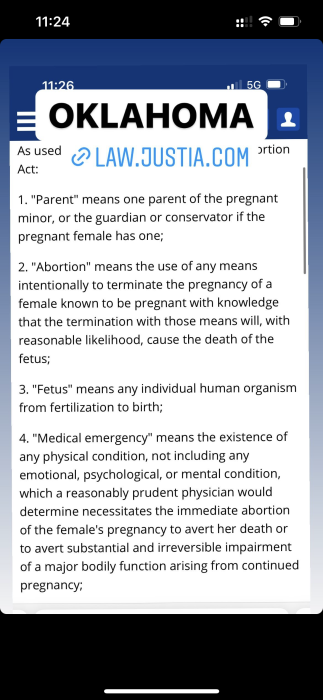
South Carolina
The definition of abortion in South Carolina does not include an act “to remove a dead fetus.” In addition, the law restricting abortion carries an exception for medical emergencies.
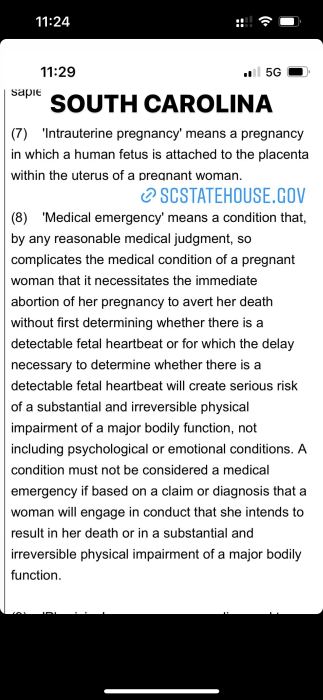
South Dakota
In South Dakota, abortion is defined as “the intentional termination of the life of a human being in the uterus,” meaning that the removal of a child who has already died is not an abortion. Surgery to remove an ectopic pregnancy does not carry the intention of killing the child and is also, therefore, not an abortion, and the law does have an exception for medical emergencies.
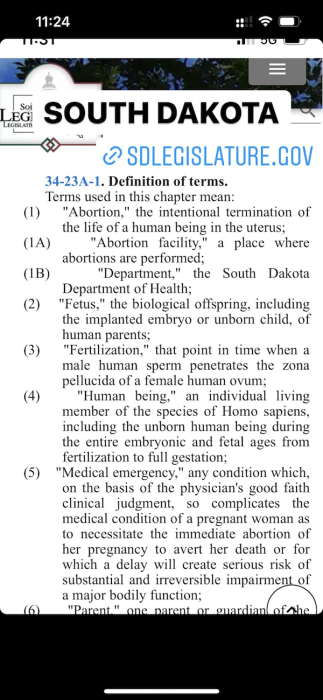
Tennessee
Tennessee law states that abortion does not include an act “to remove a dead fetus.” In addition, the law states that ending the pregnancy is allowed in order to prevent “the death of the pregnant woman or to prevent serious risk of substantial and irreversible impairment of a major bodily function of the pregnant woman.”
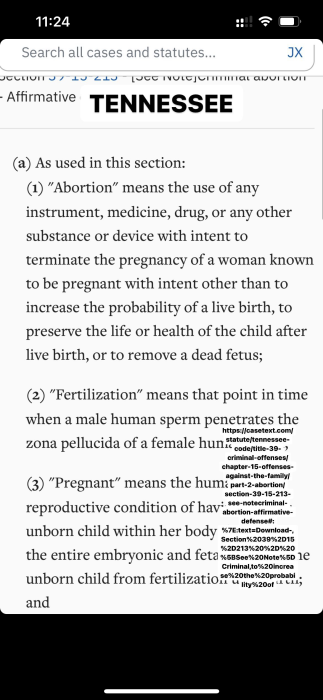
Utah
Utah’s abortion definition does not include “(i) removal of a dead unborn child (ii) removal of an ectopic pregnancy..” There is also an exception for circumstances in which the mother’s life is at risk.
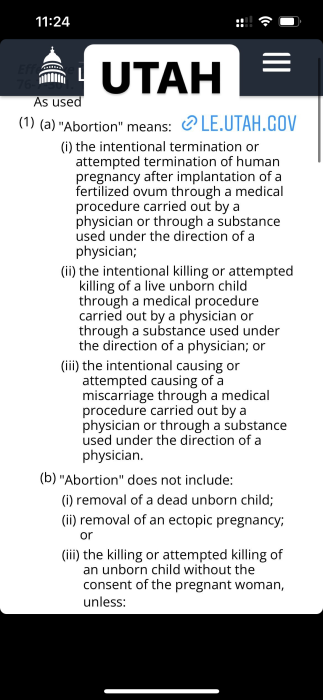
West Virginia
West Virginia law restricting abortion carries the exception for medical emergencies. It also has an exception for instances in which the preborn child will not survive, such as in an ectopic pregnancy.
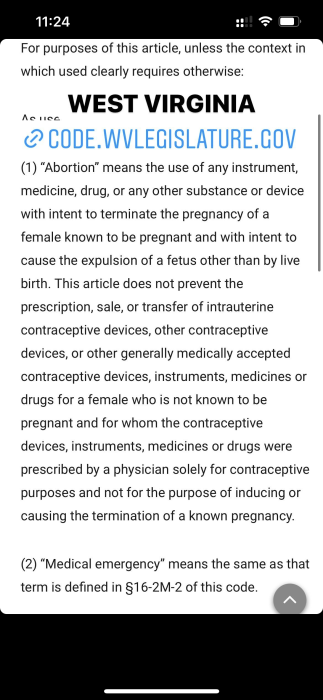
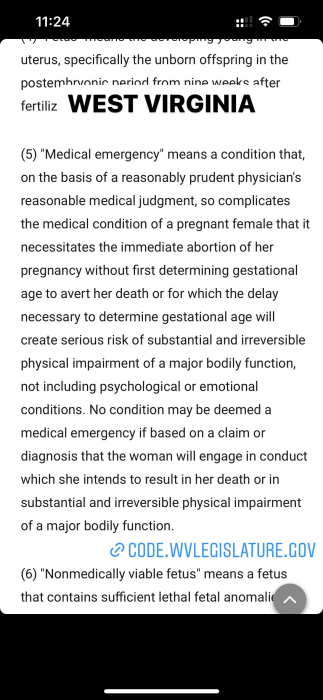
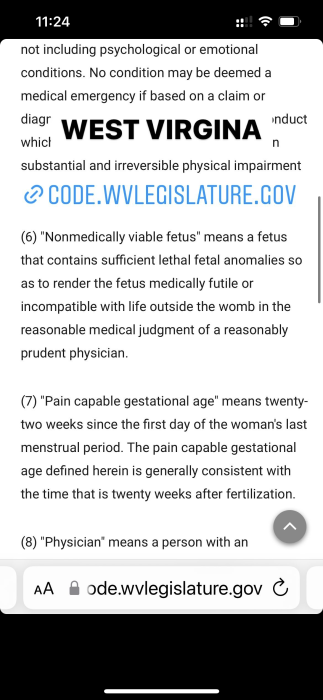
Wisconsin
Wisconsin’s definition of abortion states that it does not include an act “to remove a dead fetus.” The law also includes an exception for medical emergencies such as ectopic pregnancy.
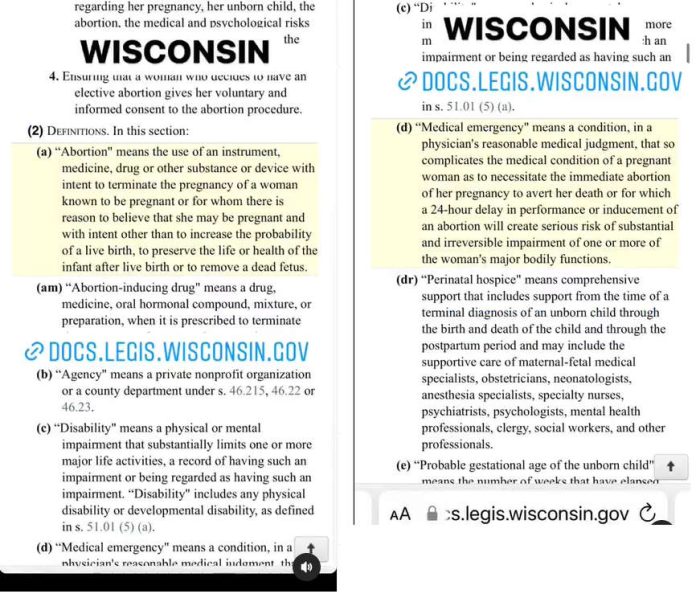
Wyoming
Abortion in Wyoming is defined as an act to end a pregnancy “except that in cases in which the viability of the embryo or fetus is threatened by continuation of the pregnancy.” The law also states that early delivery after viability shall not be considered an abortion.
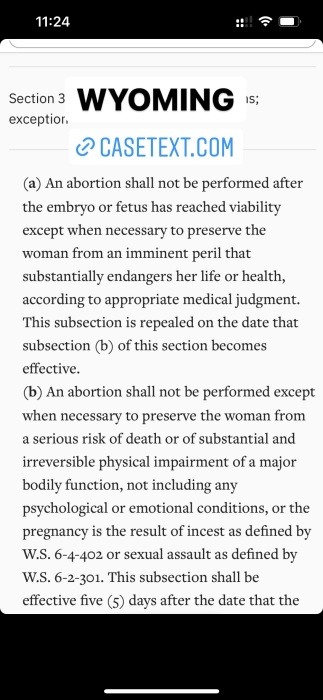
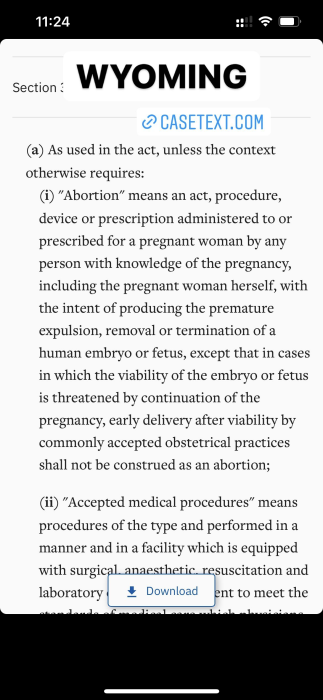
Each of these laws, though they use different language, allow for the use of surgery for ectopic pregnancy, removal of a child lost to miscarriage, and preterm delivery to save the mother’s life.
Anyone who says otherwise is purposefully misleading well-meaning Americans who want to be compassionate towards women facing child loss and pregnancy-related complications.
Pro-choicers who are taking part in sharing this misinformation could be causing women to forgo seeking treatment for medical emergencies for fear that they will break the law. In addition, they are proving that they have an agenda to keep abortion legal through all nine months of pregnancy for any reason and are using these heartbreaking situations to manipulate caring people.
Editor’s Note: All screenshots courtesy of @catie_byrd_kelley on Instagram.
“Like” Live Action News on Facebook for more pro-life news and commentary!







